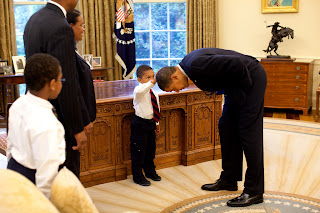Some questions I posed to Wednesday's local National Adjunct Walkout/Teach-In organizers:
Thank you for your leadership with Wednesday's event and ongoing organizational development/advocacy!
Several tough questions/thoughts occurred to me:
Several tough questions/thoughts occurred to me:
- I don't believe JCTC is over-administered. If anything, given the number of adjuncts, probably not enough staff. For example, it's very difficult to reach people in many administrative offices by phone. I'm assuming they don't have time to answer the phone.
- I don't like the term "part-time" because I teach six classes at four institutions. I am not teaching "part-time." I'm teaching full time (plus a non-teaching retail job, which no doubt pays more per hour), just across institutions - and being paid part-time. 'Contingent" is probably better but no one knows what that means.
- I think shying away from part of this being about money is a mistake. One of the reasons I'm more tired and not as well prepared in class Monday is because I work 16 hours over the weekend at the mall. If I was paid more teaching, I probably wouldn't work at the mall. Also, the more time I spend at the food pantry, the less time I have to sleep and grade and do lesson planning. etc.
- "Full-time" faculty at JCTC - especially after the new regime imposed this spring - with additional teaching and advising responsibilities for "full-time" faculty and administrators - and with additional administrative tasks because these can't be spread over adjuncts - are also very overworked/underpaid. We only hinted at this.
- Students can and do have choices - they exercise power - probably not so much by lobbying their state legislators or talking with administrators - but by voting "with their feet" - to go more in debt to go to the private and private, for-profit schools (such as Brown Mackie, etc. - where some of us also teach) - where they may get more hand-holding and lower academic standards (or IUS, where my son goes, which I believe receives more state subsidy than KY schools even in all-Republican Indiana) - or by not going to or staying in college. Certainly, higher tuition, the slow end of the Great Recession, and perceived low value may be among the reasons why our enrollments - especially in face-to-face classes - have dropped. If potential students don't think it's worth it to go to college, or don't think we offer the best product/best value, they won't sign up and take our classes.
- That House bill won't help me, since I already have a Ph.D. How about what one of my private school offers - free tuition for at least one or two classes for my spouse or child?
- Would some adjuncts be better off if the state had eliminated tenure as it tried to several years? Would there then be one tier instead of two tiers with more administrators (to pick up the slack from vanishing "full-timers") and everyone being paid less/getting fewer benefits than the "full-timers" currently do but being paid more/getting more benefits than adjuncts currently do?
- Would some adjuncts be better off if the state had eliminated tenure as it tried to several years? Would there then be one tier instead of two tiers with more administrators (to pick up the slack from vanishing "full-timers") and everyone being paid less/getting fewer benefits than the "full-timers" currently do but being paid more/getting more benefits than adjuncts currently do?
- Of course, this is part of a larger trend in the economy - more "contingent" work; lower pay; more "home businesses" - post-Fordism, flexible specialization, McDonaldization, Walmart-ization - whatever you want to call it. Will students/taxpayers/donors/
- We hinted at this. There's some trade-offs here. The state maintained much of K-12 public school spending and did NOT increase taxes partly by gutting human services and postsecondary ed spending (plus maintaining or hiking prison spending, which one of our colleagues mentioned). If we don't want taxes raised, do we want K-12 cut or human services cut more? In the short run, there may be some zero-sum game.
- A broader issue that may give us part of our niche at the same time as it challenges us: the massive educational inequality/underinvestment in K-12 public schools/poverty/mediocre academic standards in our feeder schools, particularly JCPS. A broader crisis in urban education both gives us much of our mission while it also makes our work very hard - and makes it hard for us to attract support from voters, policymakers, and even potential students and donors in Prospect, Pewee Valley, and even Crescent Hill and the Highlands.
I look forward to seeing/hearing about what may come next with the momentum built by today's event.
-Perry








